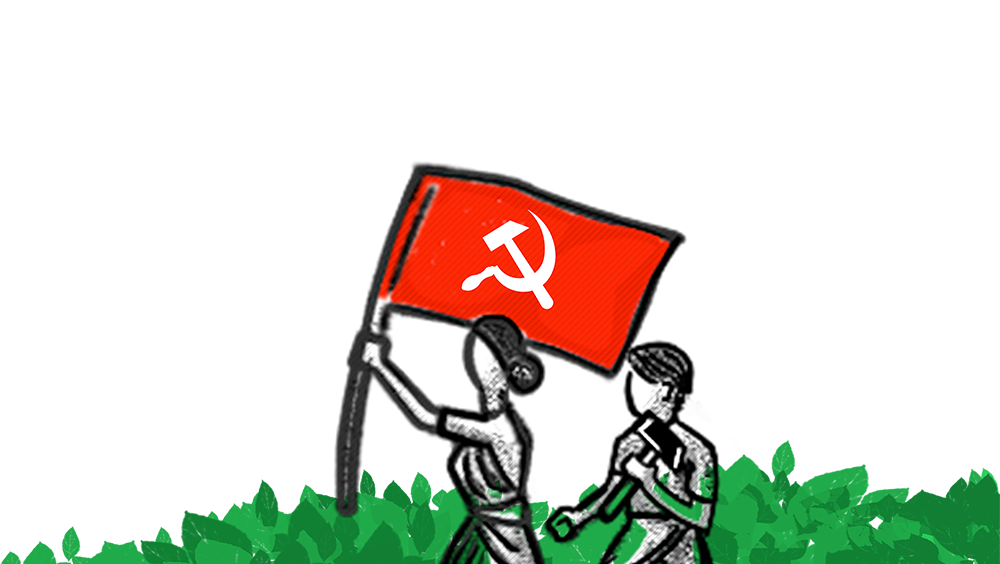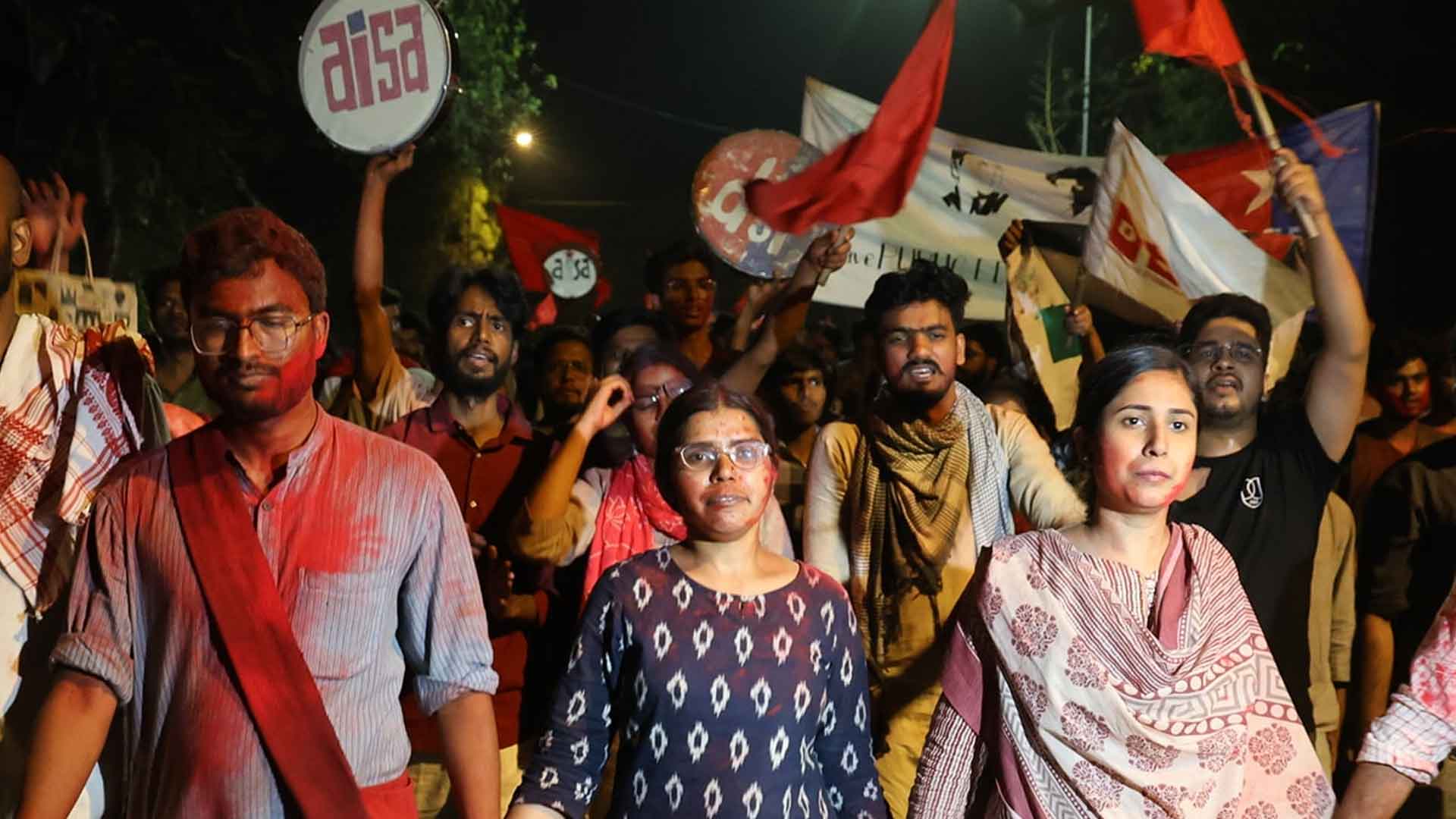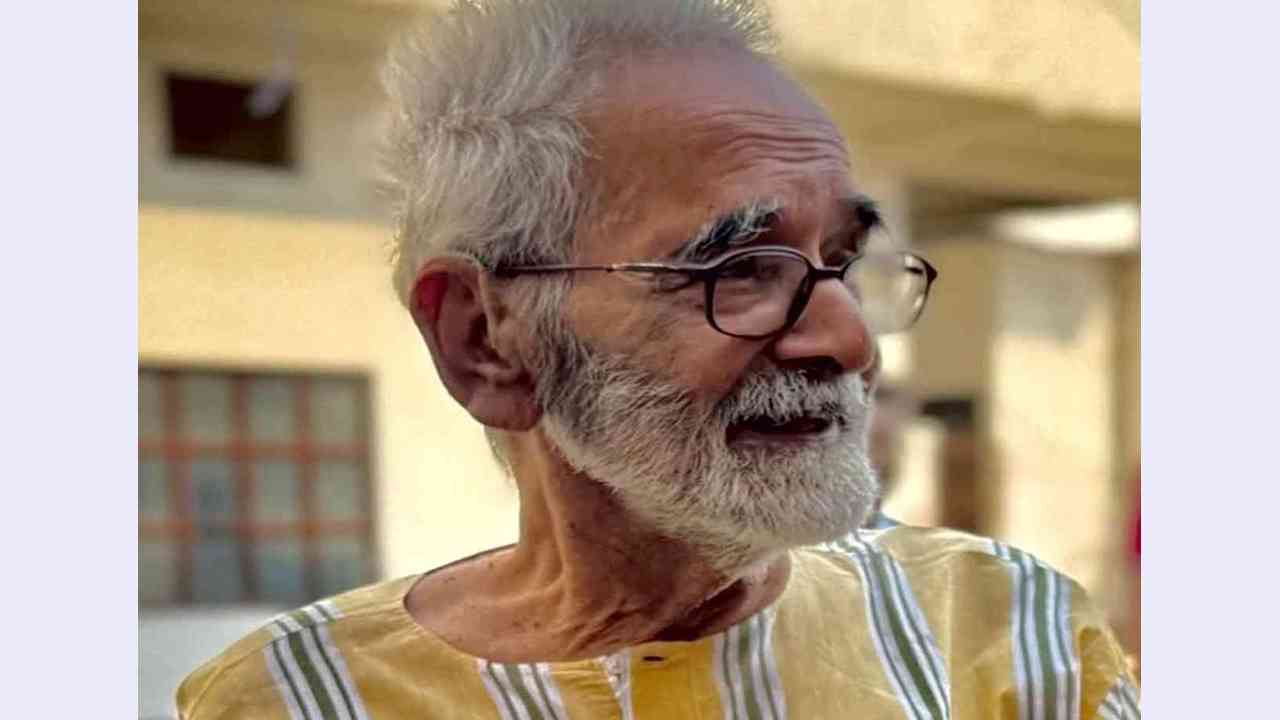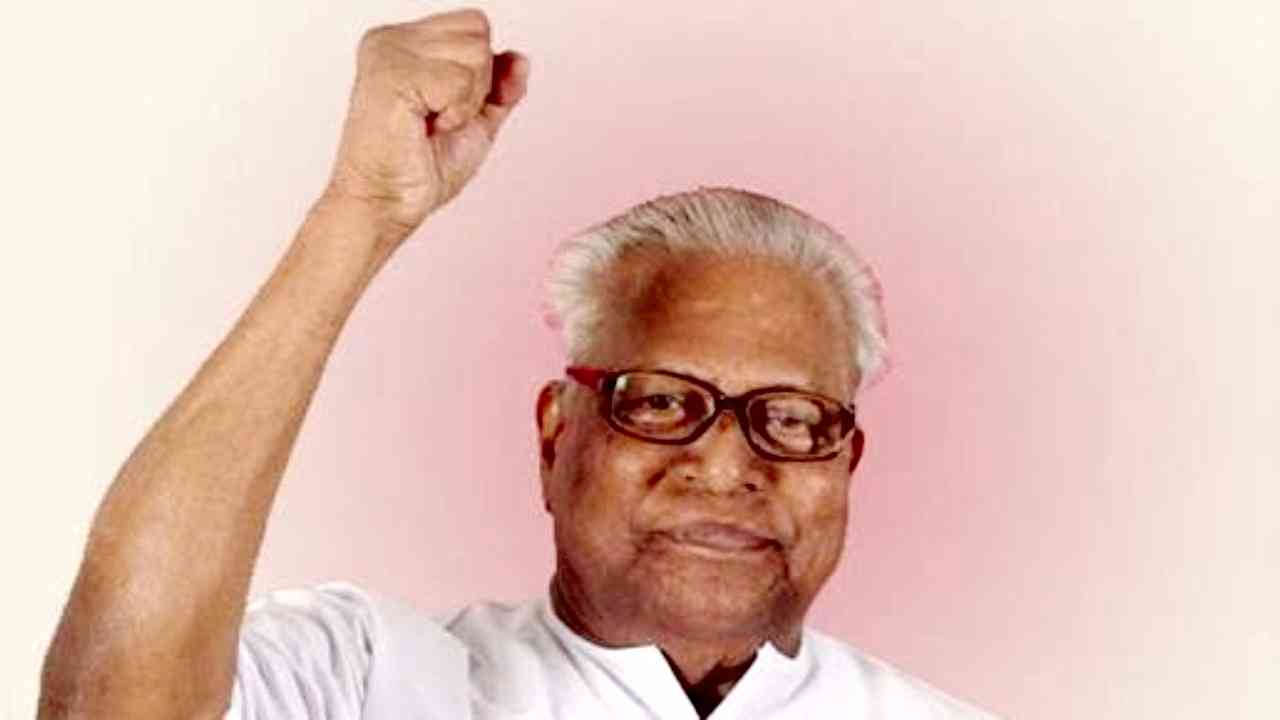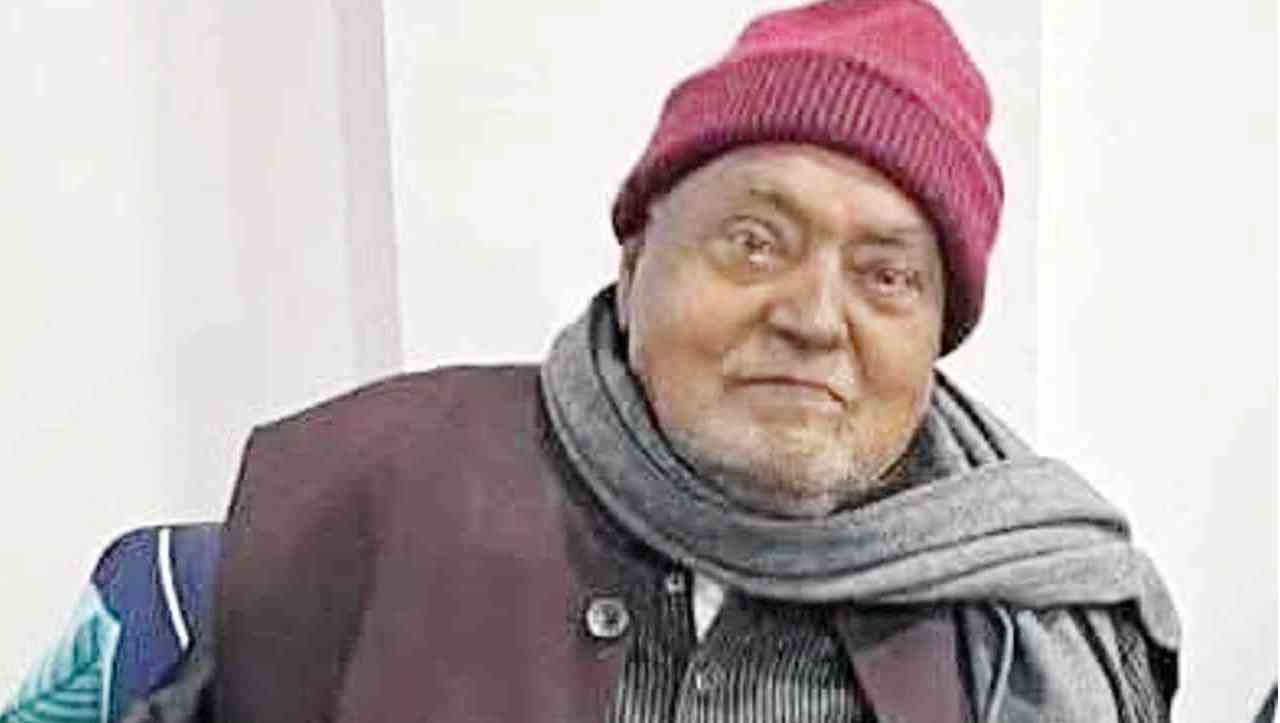AISA leader Nitish Kumar has been elected as the JNUSU president. Manisha and Munteha from DSF have been elected as the Vice-President and General Secretary respectively. Naresh Kumar from AISA lost the post of Joint Secretary by a thin margin of 85 votes.
The election happened in the backdrop of targeted policy assault by the Modi government on the country’s accessible and quality public funded higher education. Along with systematic fund cuts for public funded educational institutions, the Modi government has also unleashed the disastrous National Education Policy 2020. Like many other universities in the country, students of JNU are also facing the repercussions. While graduation courses have been restructured to introduce the Four Year Undergraduate Program, attempts are ongoing to convert the masters program to a one year course. JNU, like many other public funded universities, has been at the receiving end of fund cut. There has been a reduction in funds received from the government since 2014-15. In 2014-15, JNU spent Rs 37,807 in academic and institutional expenses per student, the same has reduced to Rs 13,921 in 2023-24, marking a 63% decline. Self-financing courses have been introduced violating all norms of democratic decision making. Several other public funded universities in the country face the same fate resulting in concrete erosion of academic infrastructure and exclusion of students from deprived backgrounds from higher education.
While the policy assault against the country’s student-youth, workers and farmers continue, the vile communal design of the ruling regime continues to rampage the country’s secular fabric. Preceded by a track record of countless mob lynchings, communal bulldozer rampage, targeted communal attack against Muslims and the attempt to threaten citizenship rights of the Muslims and marginalised through CAA-NRC-NPR, the latest phase of Modi regime has intensified its communal gameplan through violation of places of worship act, Sambhal violence, dangerous amendments to the Waqf Act and targeting of Muslims for speaking out in defence of the country’s constitution.
The JNU students have consistently spoken out and raised their voice in protest each and every time there was an assault on the rights of students and secularism in the country. They have identified the corporate-communal fascist nature of today’s regime unhesitantly. This very spirit was reflected in the mandate of the JNU election.
BJP-RSS-JNU Admin Nexus
JNU has been the primary target of the present regime since the beginning of its coming to power. The hateful Shut Down JNU campaign by the right wing in 2016 was truly reflective of the Sangh Brigade’s attitude towards universities and inclusive education.
Corrupt Recruitments: The process of recruitment of teachers has come under serious questions time and again. Several due processes have been violated to ensure specific people with loyalty to the ruling regime get recruited in JNU faculty positions. Allegations of plagiarism have also been raised earlier about faculty members recruited under the current regime. Not Found Suitable has become a weapon in the hands of the present Dhulipudi administration to deny recruitment to applicants who have not shown allegiance to the present regime. This has seriously hampered the academic quality of JNU.
The processes of admissions in JNU have also been made exclusionary and non-credible. While the well established JNU Entrance Exam has been dismantled, the Central University Entrance Test conducted by CUET has made the entire process vulnerable to the centralised and corrupt network of examinations conducted by NTA.
The RSS-BJP appointed administration leaves no stone unturned to suppress voices of rights for students while the ABVP has been given a free hand to unleash violence and spread communal hate, misogyny and their regressive ideology in the campus. Hostel mess halls, where public meetings used to traditionally happen, are no longer accessible to other student organisations, even to JNUSU. ABVP has full access to the convention centre and auditoriums of JNU. Protests have been effectively banned in front of the administrative building, but RSS is allowed to hold their rallies at the very same place. Students fighting for gender justice demanding punishment against perpetrator of sexual harassment are faced with disciplinary action, ABVP activists are not touched even after unleashing violence on the JNUSU Election Commission.
A Hard-Fought Struggle
The left and progressive organisations fought the JNUSU election in an extremely hostile environment. The administration left no stone unturned in trying to block the elections. This election should have taken place in March, if Admin had not been using flimsy excuses to stall it! It was only through the uncompromising struggle of the Occupy DoS movement fought under the banner of the earlier JNUSU led by AISA, that the administration was forced to bring out the notification of the election.
ABVP's Campaign of Violence
True to their character, ABVP attempted to sabotage the election process through physical intimidation and vandalism. On both the days of withdrawal of nominations, they attacked the Election Committee office, smashing windows, engaging in stone-pelting, and creating an atmosphere of fear. In all the elections in recent years, ABVP has made it a point to unleash violence and use it as a political tool to threaten the voters. Despite this, the proctorial board of the university has taken no action against the ABVP activists who ran rampage in the university.
Fractures in Left Unity
The left unity that JNU needed was unfortunately undermined. It is extremely unfortunate that, despite serious and sincere efforts initiated by AISA, a broader left alliance could not be forged. AISA and DSF came together to form a principled anti-fascist alliance, putting aside all differences in the larger interest of defeating ABVP. However, the arrogance and short-sightedness of SFI disrupted the possibility of a full unity. From the very beginning of the Occupy DoS movement, SFI behaved in a manner unbecoming of a democratic organisation — locking up the JNUSU President Dhananjay and taking unilateral decisions. Their electoral strategy was no different. At the last minute, they stitched together an opportunistic "alliance" with a member of BAPSA — an alliance in name only, since BAPSA openly contested with a separate presidential candidate. This confusion sent a damaging message to the student community, weakening the broader progressive front.
SFI's Misplaced Priorities
They claimed to be an anti-ABVP force, but the only thing they were fighting against in the election was AISA. Their entire campaign plan revolved around slandering AISA and DSF. From running anonymous social media handles to planting rumours — they used all the tricks in the book. Their obsessive-compulsive sectarianism and complete disrespect and disregard for alliance partners are some of the major reasons because of which the larger left unity could not take place this year.
It must be said without hesitation: it is the divisions created by SFI’s political adventurism that allowed ABVP to sneak into the Union. The campus tried hard to reject ABVP, but the arrogance of some ensured an opening for the forces of hate.
Lessons in Unity
AISA has stated that the lessons from the election must be taken seriously and unity cannot be a matter of convenience; it must be grounded in principle, in a real commitment to campus democracy, and in an unwavering opposition to fascism.
It is to be recognised that the struggle against ABVP is not limited to elections. It is a day-to-day battle — in classrooms, in hostels, in every space where democratic rights are under threat. Every attempt by ABVP to divide students on the basis of religion, caste or region must be defeated with the power of collective resistance. We must stay united, deepen our bonds of solidarity, and continue to defend the spirit of JNU. We must reject sectarianism, confront opportunism, and commit ourselves to the larger fight for democracy, equality, and justice — values that have always defined JNU and must continue to do so.
Defend the Soul and Spirit of JNU
The last tenure of JNUSU built up movements defying all odds under. Protest actions were held consistently to demand increase in Merit cum Means Scholarship and UGC non-NET fellowship, reinstatement of Maulana Azad Fellowship for students from minority background, bringing back the JNU Entrance Exam, ensure punishment for the perpetrators of sexual harassment in the campus, ensure democratic functioning of Academic Council and Board of Studies and against the imposition of self-financing and NEP in JNU. A 16 days long indefinite hunger strike was held by JNU where both the former JNUSU president Dhananjay and Nitish participated along with several other student activists. The Occupy DoS movement not only ensured notification of the JNUSU election, but also opening of the newly constructed Barak Hostel in JNU.
The uncompromising battle to ensure an inclusive campus, to defend the idea of a university ‘where the mind is without fear and the head is held high’ shall continue.

